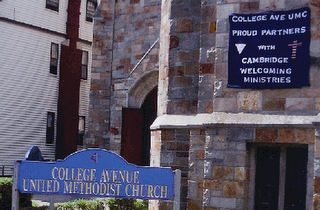Amazing Peace
Thunder rumbles in the mountain passes
And lightening rattles the eaves of our houses.
Floodwaters await in our avenues.
Snow falls upon snow, falls upon snow to avalanche
Over unprotected villages.
The sky slips low and gray and threatening.
We question ourselves. What have we done to so affront nature?
We interrogate and worry God.
Are you there? Are you there, really?
Does the covenant you made with us still hold?
Into this climate of fear and apprehension, Christmas enters,
Streaming lights of joy, ringing bells of hope
And singing carols of forgiveness high up in the bright air.
The world is encouraged to come away from rancor,
Come the way of friendship.
It is the Glad Season.
Thunder ebbs to silence and lightening sleeps quietly in the corner.
Floodwaters recede into memory.
Snow becomes a yielding cushion to aid us
As we make our way to higher ground.
Hope is born again in the faces of children.
It rides on the shoulders of our aged s they walk into their sunsets.
Hope spreads around the earth, brightening all things,
Even hate, which crouches breeding in dark corridors.
In our joy, we think we hear a whisper.
At first it is too soft. Then only half heard.
We listen carefully as it gathers strength.
We hear a sweetness.
The word is Peace.
It is loud now.
Louder than the explosion of bombs.
We tremble at the sound. We are thrilled by its presence.
It is what we have hungered for.
Not just the absence of war.
But true Peace.
A harmony of spirit, a comfort of courtesies.
Security for our beloveds and their beloveds.
We clap hands and welcome the Peace of Christmas.
We beckon this good season to wait awhile with us.
We, Baptist and Buddhist, Methodist and Muslim, say come.
Peace.
Come and fill us and our world with your majesty.
We, Jew and the Janist, the Catholic and the Confucian,
Implore you to stay awhile with us
So we may learn by your shimmering light
How to look beyond complexion and see community.
It is Chrsitmas time, a halting of hate time.
On this platform of peace, we can create a language
To translate ourselves to ourselves and to each other.
At this Holy Instant, we celebrate the Birth of Jesus Christ
Into the great religions of the world.
We jubilate the precious advent of trust.
We shout with glorious tongues the coming of hope.
All the earth’s tribes loosen their voices
To celebrate the promise of Peace.
We, Angels and Mortals, Believers and Nonbelievers,
Look heavenward and speak the word aloud.
Peace. We look at each other, then into ourselves,
And we say without shyness or apology or hesitation:
Peace, My Brother.
Peace, My Sister.
Peace, My Soul.
By Maya Angelou
Random House, 2005
